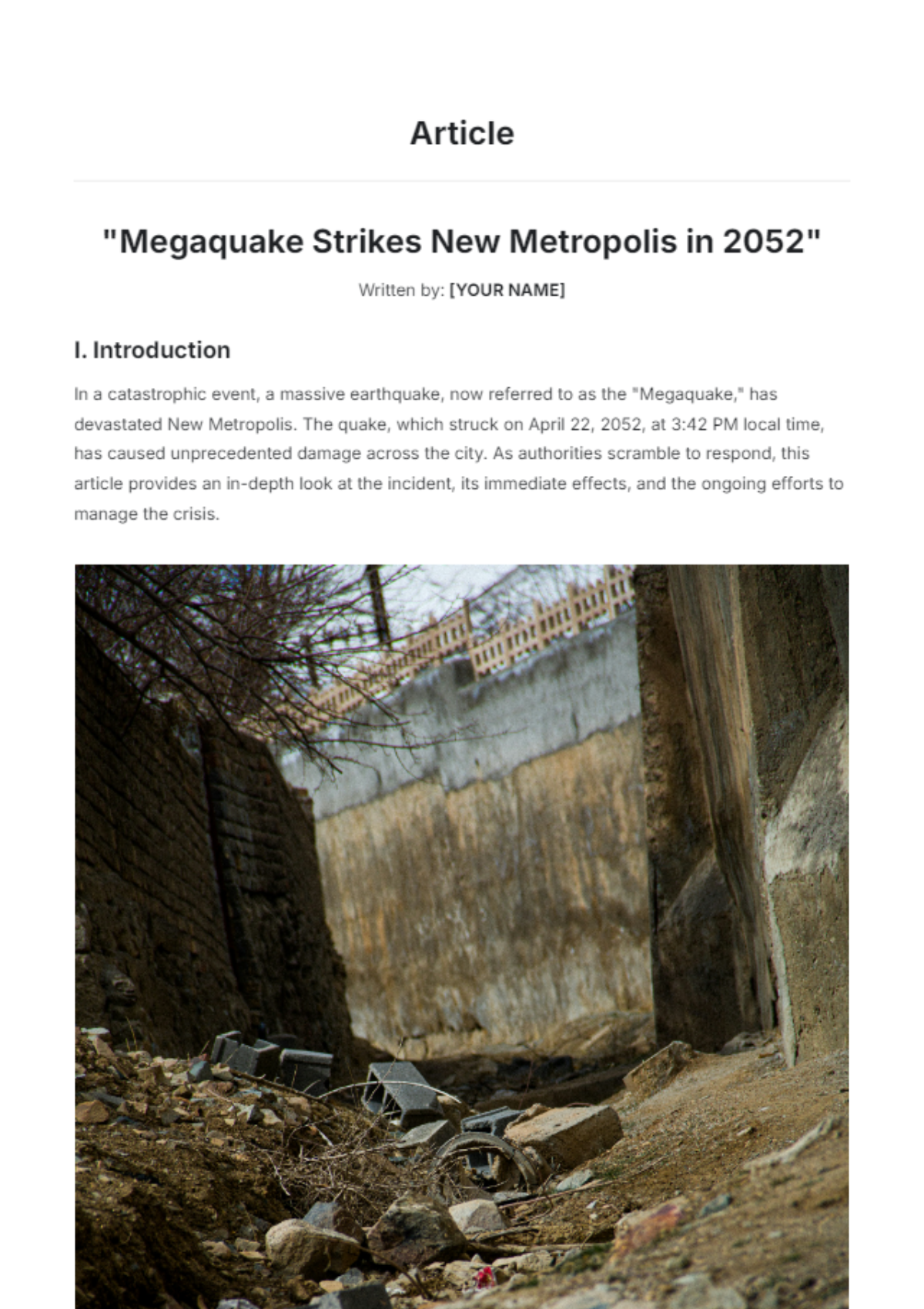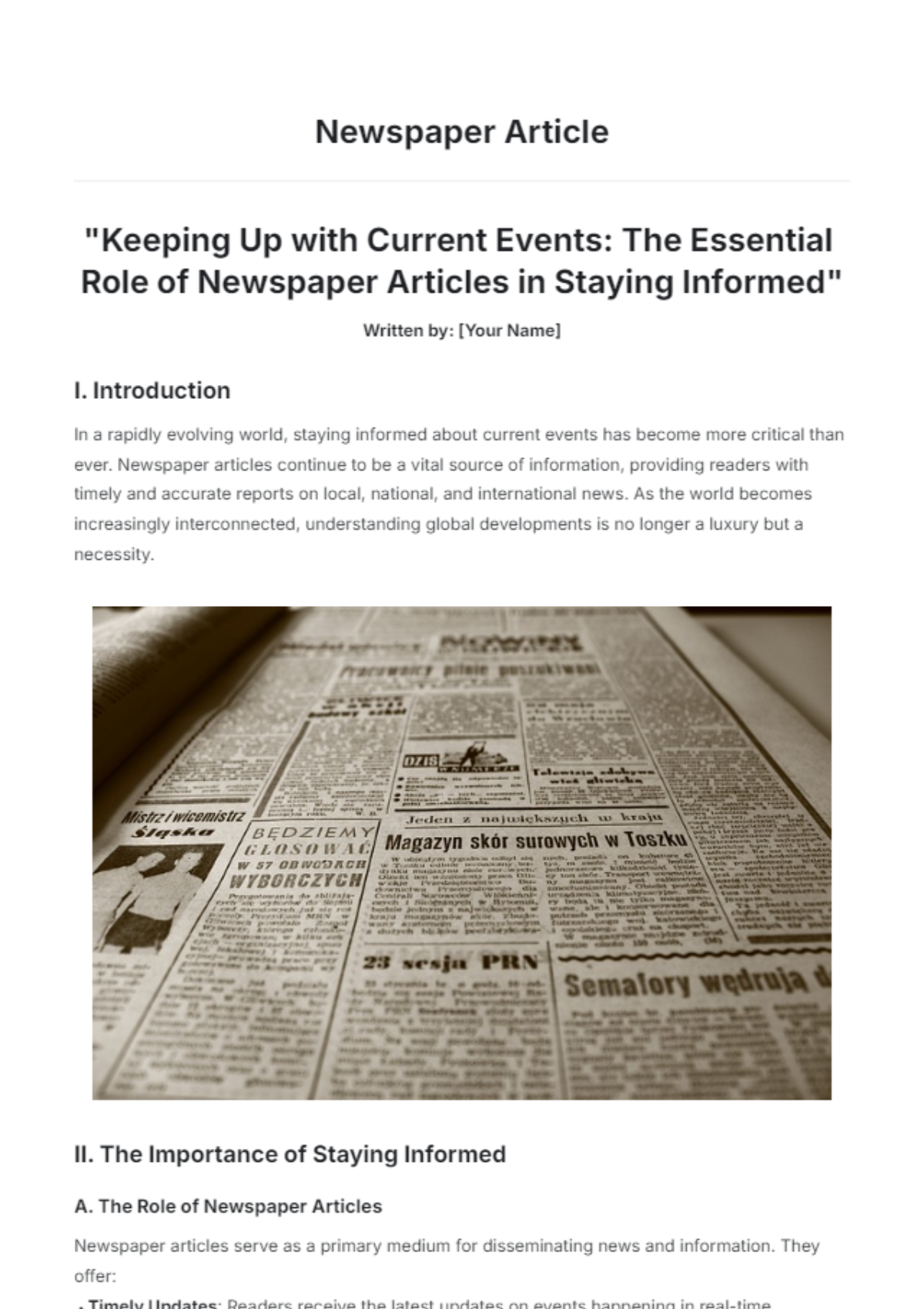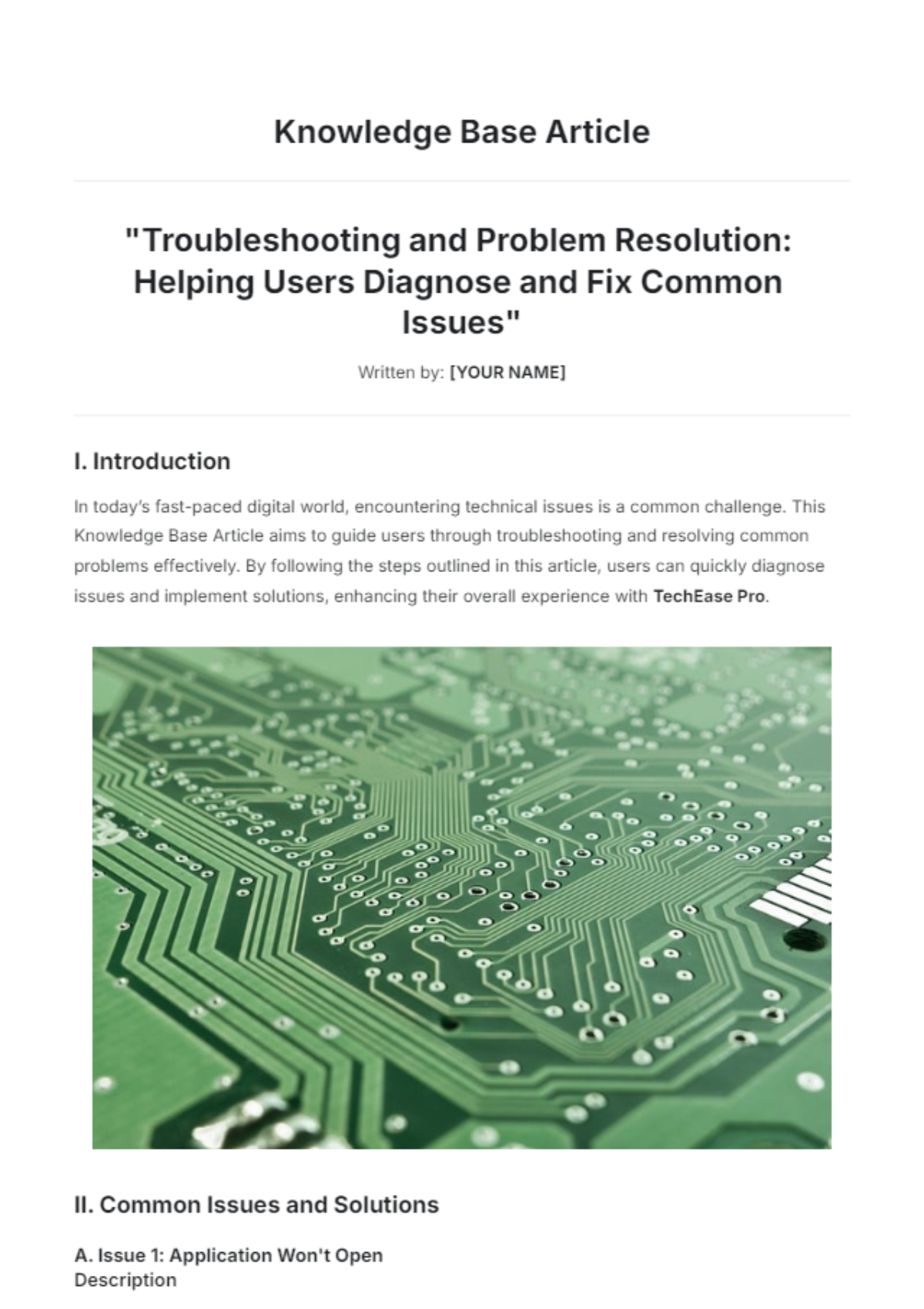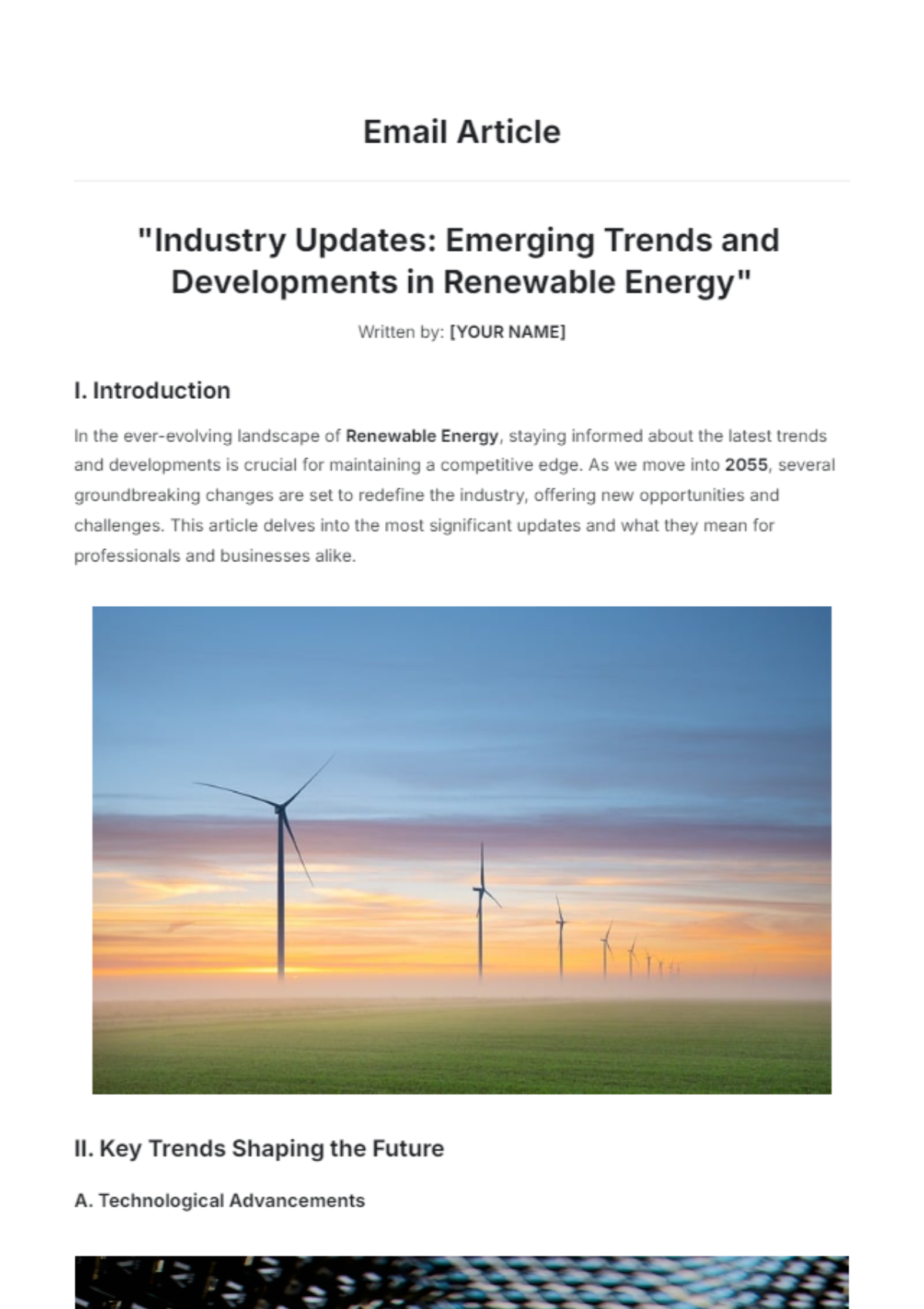CURRENT EVENTS ARTICLE
"Understanding The Impact Of Climate Change"
This article is written by [Your Name].
I. Overview of Climate Change

The recent occurrence of climate change has drawn widespread attention both locally and internationally. This event, characterized as a global environmental phenomenon, unfolded gradually over the years and has had significant implications. The ramifications of climate change are vast, influencing politics, the environment, economy, and social dynamics, precipitating an urgent need for in-depth analysis and response.
II. Detailed Analysis

A. What Happened?
The critical timeline began with the industrial revolution and the subsequent increase in greenhouse gas emissions, leading to rising global temperatures, melting polar ice caps, and extreme weather events. Key moments included the Paris Agreement of 2015, the Intergovernmental Panel on Climate Change (IPCC) reports, and the increasing frequency of natural disasters attributed to climate change.
B. Key Figures and Statements
Several notable individuals, including climate scientists, activists, and political leaders, have played pivotal roles in addressing climate change. Dr. Jane Goodall, renowned primatologist and environmentalist, emphasized the urgency of action, stating, "The time is now to save our planet." Similarly, Greta Thunberg, a prominent climate activist, sparked global attention with her powerful statements at international forums, advocating for immediate climate action.
C. Data and Statistics
The impact of climate change can be quantified with several critical metrics:
Statistic | Value | Impact Area |
|---|---|---|
Global Average Temperature Increase | 1.2°C | Global Climate |
Sea Level Rise | 3.2 millimeters per year | Coastal Regions |
Carbon Dioxide Levels | 415 parts per million (ppm) | Atmosphere |
Data sourced from reputable scientific organizations not only reflects the immediate effects but also helps forecast future trends.
III. Public and Political Reaction
The response to climate change has been varied, ranging from grassroots movements demanding climate action to international agreements aimed at reducing emissions. Communities around the world have mobilized, participating in climate strikes, tree planting initiatives, and renewable energy campaigns. Governments and policymakers have also taken steps to address climate change, with initiatives such as carbon pricing, renewable energy subsidies, and green infrastructure projects. The global reaction includes collaborations such as the United Nations Climate Change Conferences and the Green Climate Fund, aimed at supporting climate mitigation and adaptation efforts in developing countries.
IV. Conclusion and Forward Look

As the global community moves forward, the focus will undoubtedly shift towards mitigation, adaptation, and resilience-building measures. Ongoing discussions are expected to address critical debates such as transitioning to renewable energy, implementing sustainable land-use practices, and enhancing climate resilience in vulnerable communities. The full ramifications of climate change will likely unfold over the coming decades, necessitating continuous monitoring, collaborative action, and adaptive strategies.
V. References
All data mentioned in this article has been sourced from:
IPCC Special Reports, 2018-2021
NASA Climate Change Website
World Bank Climate Change Reports
This ensures the reliability of the presented analysis and supports further research.
Stay connected for more updates and in-depth analysis on this developing story at [Your Email].

















































